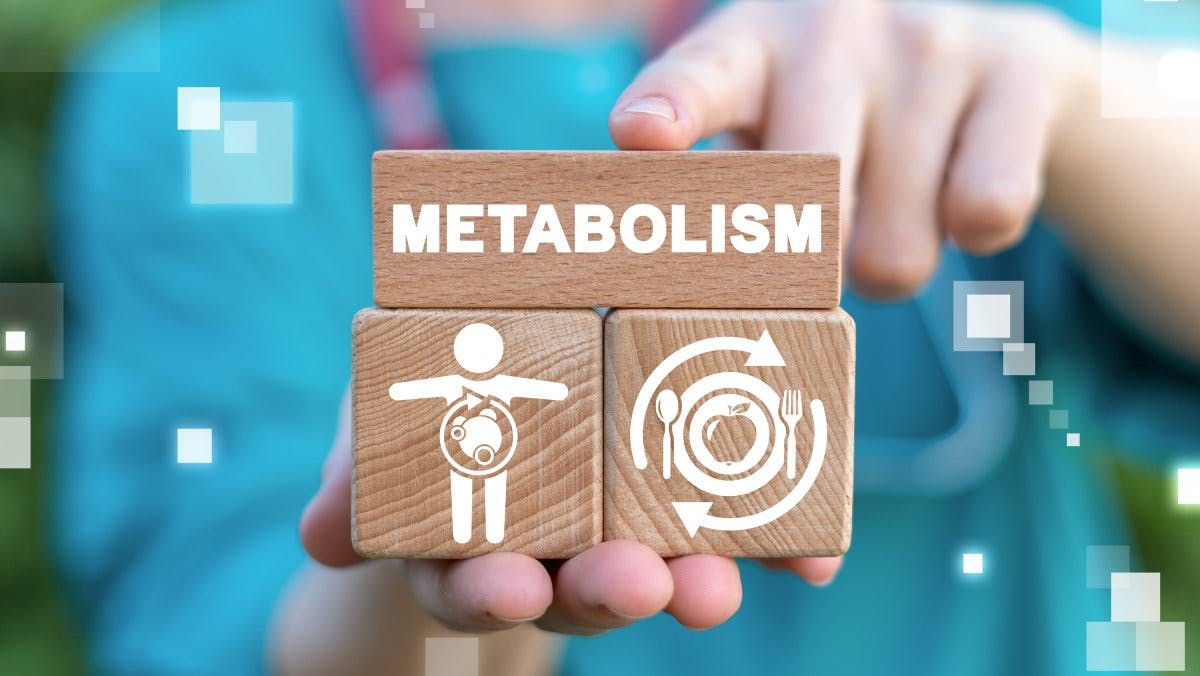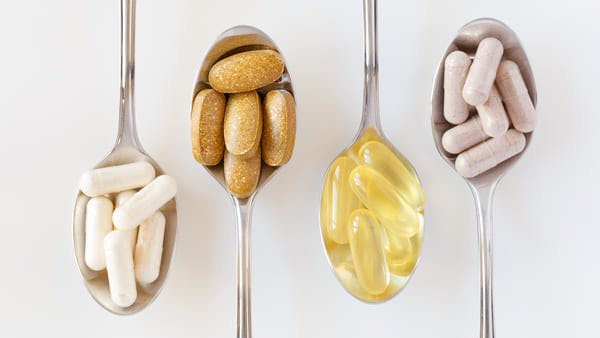Vitamins that Support Metabolism

You’ve probably heard the term metabolism used in the context of diet and exercise, especially when related to weight loss. Metabolism is the process within the body that expends energy and burns calories to keep your body functioning, even when you’re sleeping or sitting still.[1] This process is constantly happening in order to give your body the energy it needs to breathe, grow and repair cells.[1]
It's common for people to talk about wanting to speed up their metabolic process. A slower metabolism will burn fewer calories and a fast metabolism will burn calories at an accelerated rate.[1]
It is possible to manipulate your metabolism to a degree, through changes to diet and exercise, but are there vitamins that help support the body’s normal metabolism and its necessary functions?
What Vitamins Support Metabolism?
A slow metabolism can leave you feeling tired and complaining of low energy levels.[2] To feel your best, it’s important to consume a balanced, nutrient-dense diet and to exercise regularly. If your diet isn’t always the best, a multivitamin can help ensure you get nutrients like B vitamins known to support metabolism.[2]
B Vitamins
The water-soluble B vitamins play essential roles in metabolism.[3][5] Eight of them are necessary for the body to metabolize what it’s consumed:[2][3]
- Thiamine (B1) helps to convert carbohydrates and glucose to energy and assists with normal muscle function.
- Riboflavin (B2) assists in the release of energy from foods eaten.
- Niacin (B3) works with B2 to release energy from foods via the cellular respiratory chain and works in DNA repair.
- Pantothenic Acid (B5) plays an essential role in the Krebs cycle, which helps to metabolize fats, carbohydrates and proteins into carbon dioxide and water and generate energy.
- Pyridoxine (B6) is used to support immune function and brain health, in addition to metabolizing proteins, fats and carbohydrates.
- Biotin (B7) helps to make other B vitamins more useful and assists in the metabolism of fatty acids, glucose and amino acids.
- Folate (B9) is an essential vitamin for cellular growth and replication but is also required for necessary cellular reactions and the production of red blood cells.
- Cobalamin (B12) is needed for red blood cell production and neurological function, as well as synthesizing DNA and RNA.
These vitamins act as coenzymes that support cellular function, including those within the brain and nervous system.[3] If you’re deficient in any B vitamin, your body may not be able to fully metabolize amino acids, glucose, and fatty acids.[3] B vitamins are water-soluble, which means that they aren’t stored in the body and must be replenished daily through your diet.[3] Thankfully, B vitamins are found naturally in a range of foods like dairy products, leafy greens, fortified grains, and fish.[3]
Iron
This nutrient is essential for the proper functioning of the body’s circulatory system.[2] It helps to transport oxygen throughout the body and stores it within muscles for later use during contractions.[2] Iron is also crucial for the formation and function of hemoglobin, the part of red blood cells that carry oxygen, which takes place in the body’s bone marrow.[2][3]
If your iron intake is insufficient, you may be at risk for anemia and can suffer from fatigue and reduced physical performance due to a low count of red blood cells and decreased oxygen saturation.[2][4]
What if I Miss the Vitamins that Support Metabolism?
If you eat a well-balanced diet, especially one high in protein, your metabolism should be in fine form.[1][2] However, adults with high-pressure jobs and inadequate free time may find themselves eating rushed meals, making unhealthy food choices, and having a slower metabolism.[2] Macronutrient deficiencies that result from dietary choices can result in general fatigue, which results from a slower metabolism.[2] Make sure you are living a healthy lifestyle that includes restful sleep and exercise in addition to eating well.
One way to make sure you’re getting the metabolism-supporting nutrients you need is to take a multivitamin. Centrum Women Multivitamins contain B vitamins and iron to support your daily energy needs and your body’s metabolic functions. Centrum Liquid Multivitamin also contains iron and B vitamins.
If you’re concerned about either your metabolism or your nutrient intake, you should talk to your doctor or healthcare provider about your concerns. Talk to your doctor before adding any supplements to your diet.
*This statement has not been evaluated by the Food and Drug Administration. This product is not intended to diagnose, treat, cure, or prevent any disease.










